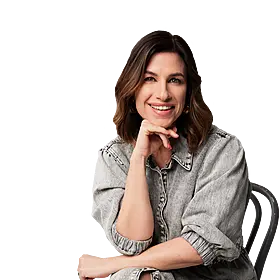A powerful new campaign by the Data Protection Commission (DPC) has created a nationwide debate about how much of children’s lives are being shared online.
The campaign, with the message “pause before you post”, depicts the reality of information which is shared when posting content of children online.
The ad displays a little girl, Ava, walking through a shopping centre with her family. Strangers begin wishing her a happy birthday, and they know everything about her: her age, her hobbies, her school, the night she plays football, and even that her dad is often late collecting her.
Speaking on Lunchtime Live, Katie Mack, presenter of the Opinions Matter podcast, applauded the ad:
“Whoever made that ad, give them all the money. It genuinely gave me goosebumps.”
The mother of two, made a personal decision never to post her children online.
She revealed that she has recognised children in public despite never having met them, purely from their parents’ social media posts:
“I’d know what school they go to, what TV shows they like, even what foods they eat. If I was that way inclined, I could easily go up and spark a conversation with them. That’s terrifying.”
For Katie, it’s not just about over-sharing, it’s about exploitation of children:
“Parents are using their kids for likes and shares. What’s more important, internet approval or your child’s safety?”
 Image: Alamy
Image: AlamyIs a private profile any safer?
Some argue that posting is harmless if your account is private , but Katie disagrees.
“Once something’s on the internet, it’s out of your control. You can’t guarantee who sees it or where it ends up.”
Psychotherapist Bethan O’Riordan agreed the ad is impactful, but said the issue is more complex.
"I'm a Scottish woman living here in Ireland. So it could be a great, you know, maybe people don't have WhatsApp groups with their family," she said.
However, she admitted that the risks are real:
“Children need protection. Mental health issues in young people are rising. Part of safeguarding them is teaching privacy and safety online.”
She highlighted another modern complication, parents who run parenting platforms:
“Some families earn a living through child-focused content. Whether we like it or not, that’s the reality now.”
Siobhan O’Neill-White of MAMS.ie shared a real- life example of the effects of sharing online. When her teenage daughter donated her hair to charity, they allowed a photo to be posted online to raise awareness.
Within days, the image was stolen and repurposed to create a fake GoFundMe campaign claiming the child had cancer.
It was eventually taken down, but only after being reported.
“Even when it’s harmless, even when it’s for a good cause, once it’s out there, you lose control.”
Growing up in the digital age
Children’s author Anne-Marie O’Sullivan said the ad shared her experience posting her children online.
“I posted photos for years thinking they were adorable, but now, as my children get older, I can see they’d cringe at some of it.”
She compared it to pre-internet life:
“If my parents printed 500 copies of a photo of me and handed it to everyone they knew, it would have seemed bizarre. But that’s essentially what we’re doing online.”









